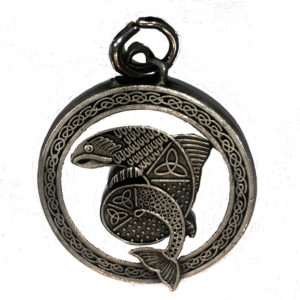Fáilte (Welcome) › Forums › General Discussion (Irish and English) › Ceist faoi logainmneacha neamhEireann
- This topic has 5 replies, 1 voice, and was last updated 10 years ago by
Bríd Mhór.
-
AuthorPosts
-
March 30, 2014 at 2:02 pm #36709
zzxjoanw
ParticipantMy understanding is there are different rules for applying the vocative to Irish vs non-Irish personal names, so I got to wondering if placenames worked the same way. Would I still apply úrú to, say, Denver?
March 30, 2014 at 7:23 pm #45132Cúnla
ParticipantDepends on the sound in question. English ⟨d⟩ and ⟨t⟩ are rarely eclipsed and never lenited (in Connemara at least, and I would think farther north likewise; I’m not sure about Munster, where their slender ⟨t⟩ is closer to an English ⟨t⟩). Things like “i mBoston,” “muintir Mhassachusetts,” “i gCalifornia,” “i bhPhiladelphia,” “i bhFlorida,” &c., are common. The closer a name is to following the rules of Irish phonology, the more likely it is to be treated as Irish.
That’s all in speech, though. In the written standard, you’re supposed to write “in” before the foreign name with no mutation, i.e., “in Boston,” “in Maine,” &c.
P.S. As for the vocative, it again depends on the sounds, and the time at which the name was borrowed into Irish. Someone named Philip would be addressed “a Philip” (no mutation), but the older name Feilipe would be lenited to “a Fheilipe.” Borrowed names in ⟨s⟩ don’t seem to be changed usually, e.g., Sarah, “a Sarah.” English ⟨d⟩ and ⟨t⟩ aren’t lenited, as “a Denise,” “a Tom.” But cf. other sounds: Mary, “a Mhary,” &c.
March 30, 2014 at 8:17 pm #45133Labhrás
Participant
P.S. As for the vocative, it again depends on the sounds, and the time at which the name was borrowed into Irish. Someone named Philip would be addressed “a Philip” (no mutation), but the older name Feilipe would be lenited to “a Fheilipe.”Isn’t “Pilib” (vocative: a Philib) the usual Irish version of Philip?
I’ve never seen “Feilipe”.March 31, 2014 at 6:52 pm #45134Cúnla
ParticipantPilib is indeed probably more common (or at least “canonical”), I just wanted to give an example of an older borrowing that started with an ⟨f⟩ and that was treated as an Irish name would be. Feilipe (also Feilip) is found in Connemara at any rate.
April 4, 2014 at 8:57 pm #45137Héilics Órbhuí
ParticipantI’ve usually seen “i mBoston” in print. I’ve never read what the official standard actually has to say about that, but in my experience that’s how people write it regardless. I don’t think I’ve ever seen “in Boston” in print anywhere. Likewise, I’ve never seen anything like “in Páras” – it’s always “i bPáras”.
April 5, 2014 at 11:23 am #45143Bríd Mhór
ParticipantDepends on the sound in question. English ⟨d⟩ and ⟨t⟩ are rarely eclipsed and never lenited (in Connemara at least, and I would think farther north likewise; I’m not sure about Munster, where their slender ⟨t⟩ is closer to an English ⟨t⟩). Things like “i mBoston,” “muintir Mhassachusetts,” “i gCalifornia,” “i bhPhiladelphia,” “i bhFlorida,” &c., are common. The closer a name is to following the rules of Irish phonology, the more likely it is to be treated as Irish.
That is what I’d say too. I would also write them that way. Although it is probably against the standard rules.
In Conamara it’s common to lenite Sara too. ” A Shara”. And ofcourse, “a Mhichael”, “a Mhary”, but not “Tom”.
-
AuthorPosts
- You must be logged in to reply to this topic.
